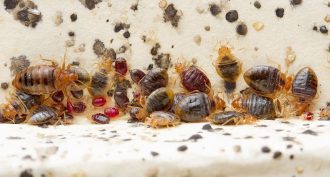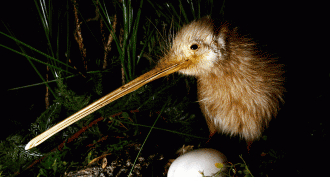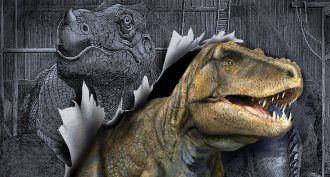Life
-
 Space
SpaceEn route to Mars, astronauts may face big health risks
Going into space brings the thrill of a new frontier — and risks that scientists are racing to understand, from radiation to isolation.
-
 Health & Medicine
Health & MedicineYuck! Bedbug poop leaves lingering health risks
Chemical residues left by bedbugs can persist, even when the pests have been eradicated. This may explain lingering allergic symptoms in cleaned up homes, a new study concludes.
-
 Genetics
GeneticsCan DNA editing save endangered species?
Scientists may be able to help endangered species by changing the genes of a whole population of wild animals. But some question whether that is wise.
-
 Chemistry
ChemistryHuman waste could power plastic-making in space
Someday recycled urine and exhaled breath could feed specially engineered yeast to make plastics and other useful chemicals on long space missions.
-
 Tech
TechHuman cells form the basis of this artificial eye
Real or fake — you be the judge. Human cells were used to create this test bed for studying both the eye and eye-disease therapies.
-
 Life
LifeDefining a dinosaur is now far harder
New fossil finds are making it difficult to say for certain what makes dinosaurs unique.
-
 Environment
EnvironmentFish get pooped living in polluted water
Living in polluted water can tire fish out, a new study finds. This can make it harder for them to find food and avoid being eaten, themselves, by predators.
-
 Animals
AnimalsScientists Say: Zooplankton
These plankton are tiny, but don’t let that fool you. They are predators, too.
-
 Materials Science
Materials ScienceHairy nanoparticles put viruses in a deadly embrace
Current drugs can’t stop viruses for good. But newly developed hairy nanoparticles just might. They surround and put pressure on the viruses, which ultimately destroys them.
By Ilima Loomis -
 Space
SpaceMost Americans would welcome a microbial E.T.
People are more likely to welcome than be scared by new evidence pointing to extraterrestrial life, Americans report — at least if the E.T.’s are tiny.
-
 Health & Medicine
Health & MedicineScientists Say: Triclosan
This chemical is known for its bacteria-killing skills. But its use can also promote the development of dangerous, antibiotic-resistant bacteria.
-
 Brain
BrainWoodpecker brains host protein linked with human brain damage
Woodpeckers peck with a force great enough to give people concussions. Now a study shows that birds, too, may suffer some brain damage.